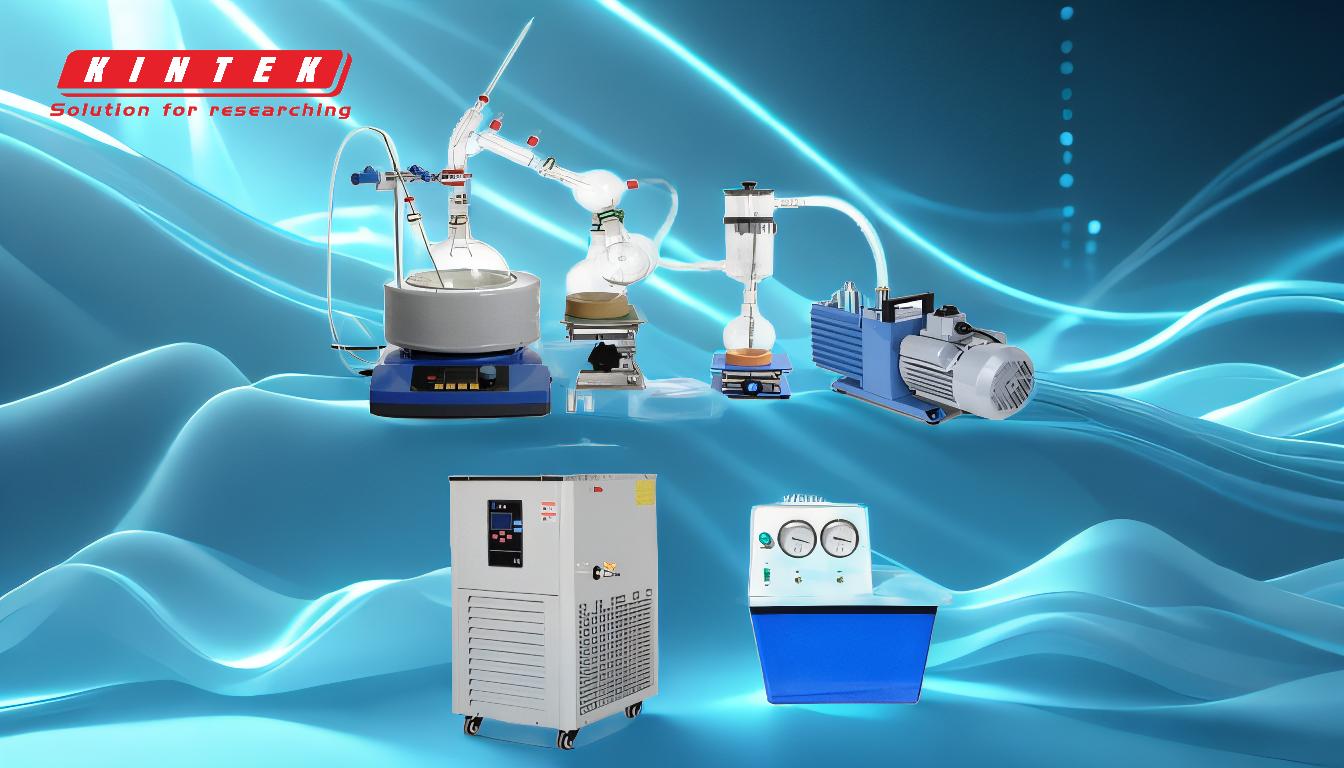Distillation is a fundamental separation process used to purify or separate substances based on their differing boiling points. It involves heating a mixture to evaporate the component with the lowest boiling point, then condensing the vapor back into a liquid. This process is widely applied in various fields, including water purification, chemical synthesis, food and beverage production, and the extraction of essential oils. From producing distilled water for industrial use to refining alcoholic beverages and isolating cannabinoids, distillation plays a critical role in everyday life and industrial processes. Its versatility and efficiency make it indispensable in both small-scale and large-scale applications.
Key Points Explained:

-
Definition and Mechanism of Distillation:
- Distillation is a separation technique that leverages differences in boiling points to isolate components from a mixture.
- The process involves heating the mixture to vaporize the more volatile component, then cooling the vapor to condense it back into a liquid.
- This method is highly effective for purifying liquids or separating mixtures with distinct boiling points.
-
Applications in Water Purification:
- Desalination: Distillation is used to convert seawater into potable drinking water by evaporating and condensing the water, leaving behind salts and impurities.
- Distilled Water Production: Distilled water is essential for applications requiring high purity, such as in lead-acid batteries, laboratory experiments, and low-volume humidifiers.
-
Role in Food and Beverage Production:
- Alcoholic Beverages: Distillation is a key step in producing spirits like whiskey, vodka, and rum. It increases the alcohol content by separating ethanol from fermented mixtures.
- Food Flavorings and Perfumes: Essential oils and aromatic compounds are extracted from herbs and plants using distillation, contributing to the production of flavors and fragrances.
-
Industrial and Chemical Applications:
- Oil Stabilization: Distillation reduces the vapor pressure of crude oil, making it safer for storage and transportation.
- Chemical Synthesis: Distillation is used to purify liquid products obtained from chemical reactions, ensuring high-quality outputs for industrial use.
- Cryogenic Distillation: This specialized form of distillation separates air into its primary components—nitrogen, oxygen, and argon—by exploiting differences in their boiling points at extremely low temperatures.
-
Use in Cannabis and Hemp Industries:
- Distillation is employed to extract and purify cannabinoids like CBD and THC, which are used in medicinal and recreational products.
- It is also used in the production of vape pen oils, ensuring consistent potency and purity.
-
Steam Distillation for Temperature-Sensitive Mixtures:
- Steam distillation is particularly useful for purifying organic compounds that decompose at high temperatures.
- It involves introducing steam to lower the boiling points of the target compounds, allowing them to vaporize without degradation.
- This method is widely used in the extraction of essential oils, fats, waxes, and perfumes.
-
Historical and Traditional Uses:
- Distillation has been used for centuries to increase the alcohol content of fermented beverages and to purify water for safe consumption.
- Its historical significance underscores its reliability and effectiveness as a separation technique.
-
Importance in Everyday Life:
- From the water we drink to the perfumes we wear and the medicines we use, distillation impacts numerous aspects of daily life.
- Its applications span across industries, making it a cornerstone of modern science and technology.
In summary, distillation is a versatile and essential process with wide-ranging applications in everyday life and industrial settings. Its ability to separate and purify substances based on boiling points makes it invaluable in fields such as water purification, food and beverage production, chemical synthesis, and the extraction of essential oils and cannabinoids. Whether on a small scale in laboratories or on an industrial scale in refineries, distillation continues to play a critical role in ensuring the purity and quality of products we rely on daily.
Summary Table:
| Application | Key Use |
|---|---|
| Water Purification | Desalination, distilled water production for labs and batteries. |
| Food & Beverage Production | Production of alcoholic beverages, extraction of essential oils and flavors. |
| Chemical Synthesis | Purification of chemicals, cryogenic distillation of air components. |
| Cannabis Industry | Extraction and purification of cannabinoids like CBD and THC. |
| Steam Distillation | Extraction of temperature-sensitive compounds like essential oils. |
Discover how distillation can optimize your processes—contact us today for expert guidance!










